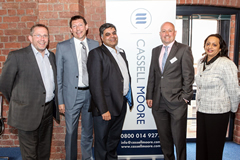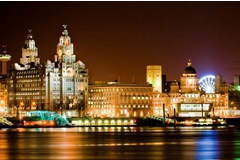Despite the fact that the project is one of the most important infrastructure schemes ever proposed for the north of England, there remains a huge amount of apathy from business leaders to the much discussed and debated High Speed 2.
This is largely because the new fast tracks from London to the North are not likely to be laid anytime before 2026, with full completion not due until 2032. Add to that timescale the inevitable delays that seem to accompany every major British infrastructure project, and we’re more likely looking at 2035, by which time many of us will be eligible for a senior citizens rail card – if we’re still here at all.
However, this is to miss the point of how the North and its great cities and regions can market, promote and attract investment.
Speaking to several overseas visitors and potential investors over the past few weeks at the International Festival for Business in Liverpool, and it is interesting to note that they are vaguely curious about the past ten years; certainly interested about the next ten; but most quizzical about what strategies and plans are in place for the next twenty five years.
If you are representing a company that is looking to relocate or establish a major brand in a new city, then it is not unreasonable for you to want to be confident that your investment is being made in a place that has a sustainable, long term future.
This is why the winning of the argument about HS2 is so crucial. And then HS3 on the back of it, to better connect northern cities together.
Getting to London thirty minutes quicker may or may not be a killer HS2 argument for many, but HS3, the ability to then connect Manchester to Leeds on modern, high speed trains and tracks must surely win the approval of any serious business leader in the north.
Whilst London continues to plough hundreds of millions of pounds improving its infrastructure, and is squabbling not about ‘if’ a new airport but ‘where’, there is not a whisper of discontent from the Capitals chattering classes or the Westminster political fixers. Money spent in the south, it seems, is unquestionably well spent.
The nonsense spoken of in terms of the costs surrounding HS2 must be seen as what they are – an antiquated vision of a dilapidated, slow moving north, grateful to be kept afloat by the crumbs from an ever growing, indeed overflowing, South East table.
Of course the renaissance of our big cities in modern times, Leeds, Liverpool and particularly Manchester, has been remarkable. But for us to continue and indeed accelerate the progress of our region, then investment not only in rail, but on our road networks too, is absolutely essential.
HS2 and HS3 may not be here in your lifetime – but those international companies and investors want to be confident that it will be here at some point. And that is why HS2 is important now, and why we must fight enthusiastically for it to be delivered.







